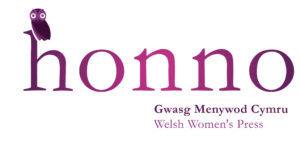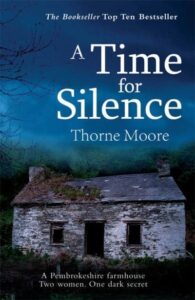 “Great Women, Great Writing, Great Stories”
“Great Women, Great Writing, Great Stories”
Honno Press was set up in 1986 with four core aims: to provide a feminist perspective, to give Welsh women writers an opportunity to see their work published, to get earlier important, but neglected, writing by Welsh women back into print and to provide employment in publishing for women in Wales.
At the time, none of the publishing houses in Wales were particularly interested in promoting Women’s literature or writers, especially not in English. There was a practice of publishing Welsh-language material by winners of competitions in the National Eisteddfod by the traditional presses, who would then pursue those particular authors. But the thought of going out to look for new female talent and female voices was not a priority
 The establishment of Honno, their active search for women writers in both languages in Wales widened opportunities for women and saw all the Welsh publishers take women’s writing and the subjects women write about more seriously.
The establishment of Honno, their active search for women writers in both languages in Wales widened opportunities for women and saw all the Welsh publishers take women’s writing and the subjects women write about more seriously.
When asked why there is such a great variety in the books published by Honno, Janet Thomas, former editor of Honno and now on the committee, says, “I think a key reason for the vitality of Honno’s list that we are run as a group, with a variety of tastes, enthusiasms and expertise. Honno tries to be open to all the broad range of writing that Welsh women want to write, looking for talent as widely as possible, Welsh and English, in all different kinds of fiction and non-fiction. As long as the skill is there, whatever the genre, style or subject matter, Honno will consider publishing their work.”
The commitment to provide opportunities for women in Wales in the publishing world is still at the heart of Honno. As well as the experienced staff, who appreciate the chance to work in publishing in mid-Wales, over the years there have been many volunteers in the Honno office, allowing them to gain practical experience and an insight into how publishing works. Volunteers generally take part in marketing activities, read manuscripts, help with general office procedure, and work on other projects as required. Gaining experience at Honno has helped many to go on to work in various areas of publishing. (Of course, at the time of writing, due to the pandemic, this is on hold.)
 Throughout the years the Press and its titles have garnered many awards including Wales Book of the Year. Even so, as Caroline Oakley, Editor for Honno says, “For independent presses to survive and compete against the big publishers they need strong customer support and to build a community of enthusiastic readers – a lot of which recent tech advances enable. Social media is vital to creating a groundswell of interest in any new title from a small press with ‘word of mouth’ (or more likely ‘tweet’) becoming an essential viral marketing tool.”
Throughout the years the Press and its titles have garnered many awards including Wales Book of the Year. Even so, as Caroline Oakley, Editor for Honno says, “For independent presses to survive and compete against the big publishers they need strong customer support and to build a community of enthusiastic readers – a lot of which recent tech advances enable. Social media is vital to creating a groundswell of interest in any new title from a small press with ‘word of mouth’ (or more likely ‘tweet’) becoming an essential viral marketing tool.”
Finally, when asked to sum up what Honno have done, Janet says, “It’s hard not to see all we haven’t done – the writers we want to find, the histories we want to tell. I have a note my late father once wrote out for me, a quote from Ecclesiastes: ‘And of the making of books there is no end.’ I think he gave it to me as a comfort when I was feeling overwhelmed by one project or another, but it’s also optimistic. We keep going. Books matter. They last. The books we haven’t published yet are, with luck, the books we will publish next year. For Honno to have survived thirty-five years is a great achievement and a testimony to all the women who’ve been part of it. It’s also, hopefully, just the beginning.”
